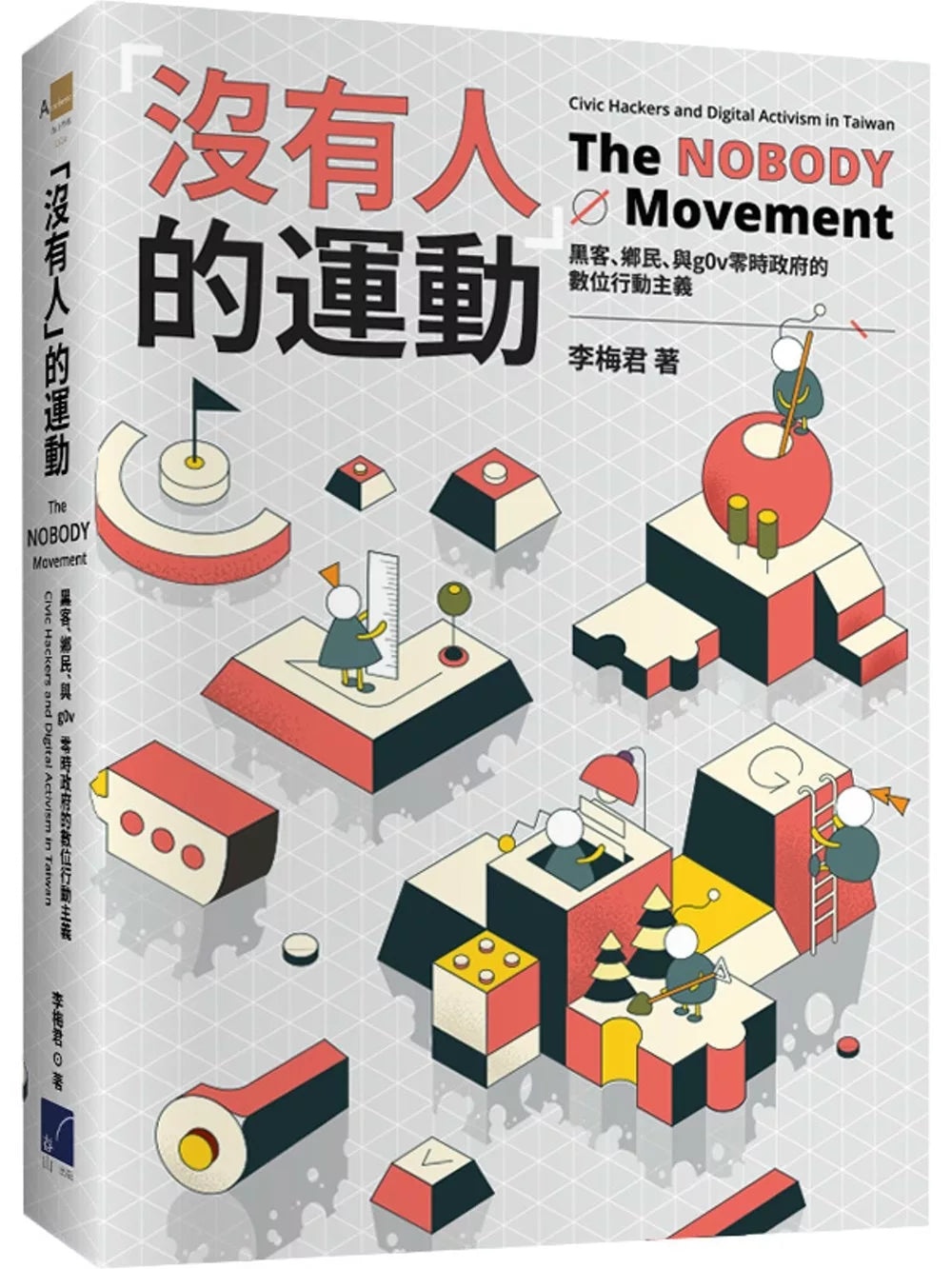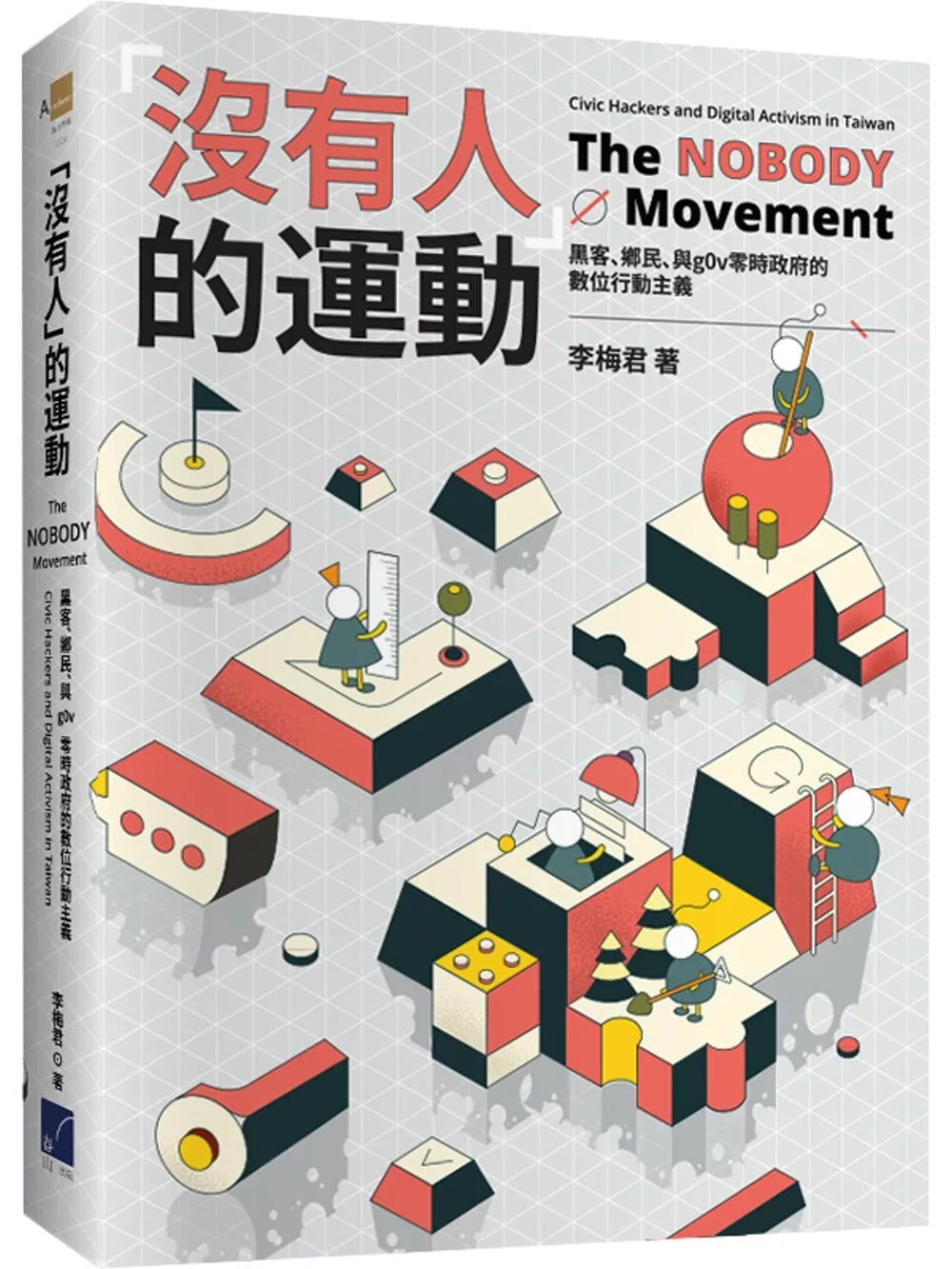1
/
of
2
The "No One" Movement: Hackers, Citizens, and the Digital Activism of the G0V Zero-Hour Government
The "No One" Movement: Hackers, Citizens, and the Digital Activism of the G0V Zero-Hour Government
Li Meijun
Regular price
$27.99 USD
Regular price
Sale price
$27.99 USD
Unit price
/
per
Low stock
Couldn't load pickup availability
About Book
About Book
The NOBODY Movement: Civic Hackers and Digital Activism in Taiwan
Between Technology and Politics: A Digital Ethnography of G0V and Its ActivistsSince the Sunflower Movement in 2014, Taiwan's civil society has experienced numerous political upheavals. From street rallies to online collaboration, from the Blue Bird Movement to the general recall movement, wave after wave of citizen power has continually redefined democratic participation. "The Movement of 'No One'" returns to the source of these events, focusing on a group of activists who call themselves "no one"—g0v Zero Hour Government. Through online collaboration and in-person hackathons, they build "civic technology" to intervene in social movements, promote open government, and combat misinformation, demonstrating an innovative and decentralized political practice.
"A Movement Without People" is a digital ethnography that oscillates between online and offline, focusing on how humans and non-humans collaborate. Through a decade of fieldwork, the author has deeply engaged with and observed how g0v hackers employ digital tools to practice decentralized governance while developing civic technology for radical digital democratic activism. The author proposes the core concept of "parasite activism," analyzing how g0v, through repetitive debate and translation of the ambiguity and ambiguity of "openness," navigates like a parasite between state institutions and social movements, collaboration and resistance, thereby voicing dissent and opening up space for activism amidst rapidly shifting domestic and regional politics.
As large-scale street movements recede and community energy dissipates, digital activism enters a period of transition. This book offers a profound ethnographic record of this decentralized experiment in digital democracy. There's no naive optimism about technology, nor is there a deification of activists. Drawing from Taiwan's democratic development and political realities, the author traces the rise of the G0V, analyzing how it established "digital democracy" as Taiwan's international brand, while also confronting its internal contradictions, tensions, and limitations.
"Openness" has become the new vocabulary of contemporary democracy. g0v's journey reflects a slice of an era, inspiring us to rethink the possibilities and unfinished promises of democratic politics in the digital age, and to prepare for the next wave of challenges facing Taiwanese society and global democracy.
Jointly recommended
Yu Zhenyi (Associate Professor, Institute of Gender Studies, Kaohsiung Medical University)
Lin Kaishi (Director, National Taiwan University Museum of Anthropology)
Lin Changzuo (Freddy, lead singer of Chthonic)
Hou Yixiu (Secretary-General of the Taiwan Artificial Intelligence School Foundation and g0v participant)
Tang Feng and Gao Jialiang (co-founders of g0v, CEO of Recce)
Zhang Jieping (Founder of Matters)
Huang Houming (Distinguished Professor, Department of Sociology, National Chengchi University)
Peng Songyue (Associate Professor, Institute of Science, Technology and Society, Yangming Jiaotong University)
Liu Wen (Associate Researcher, Institute of Ethnology, Academia Sinica)
Liu Zhixin (author of "The Making of Truth")
Qu Xiaowei (co-founder of g0v, writer)
When the far corners of the world, exotic customs, and unfamiliar countries can all be easily viewed on TikTok or YouTube, and when tribes and indigenous peoples no longer need outsiders to represent them, what else can anthropologists do? Li Meijun's book, "The Movement Without People," suggests a new direction. At the nexus of the global and the local, at the intersection of technology and the humanities, new networks and actions are constantly emerging, and patchwork and improvisational tribes are gathering in unexpected places. They are both ordinary and novel, idealistic and pragmatic, and they cannot be easily categorized or framed by any ideology. These flows and pauses are cultural phenomena emerging in our contemporary era, and they also symbolize an expectation and imagination for the future. This is an innovative ethnography recommended to all those who care about the present and the future. —Lin Kai-shi (Director, National Taiwan University Museum of Anthropology)
Publication Date
Publication Date
2025-05-13
Publisher
Publisher
春山出版
Imprint
Imprint
Pages
Pages
360
ISBN
ISBN
9786267478585
share



